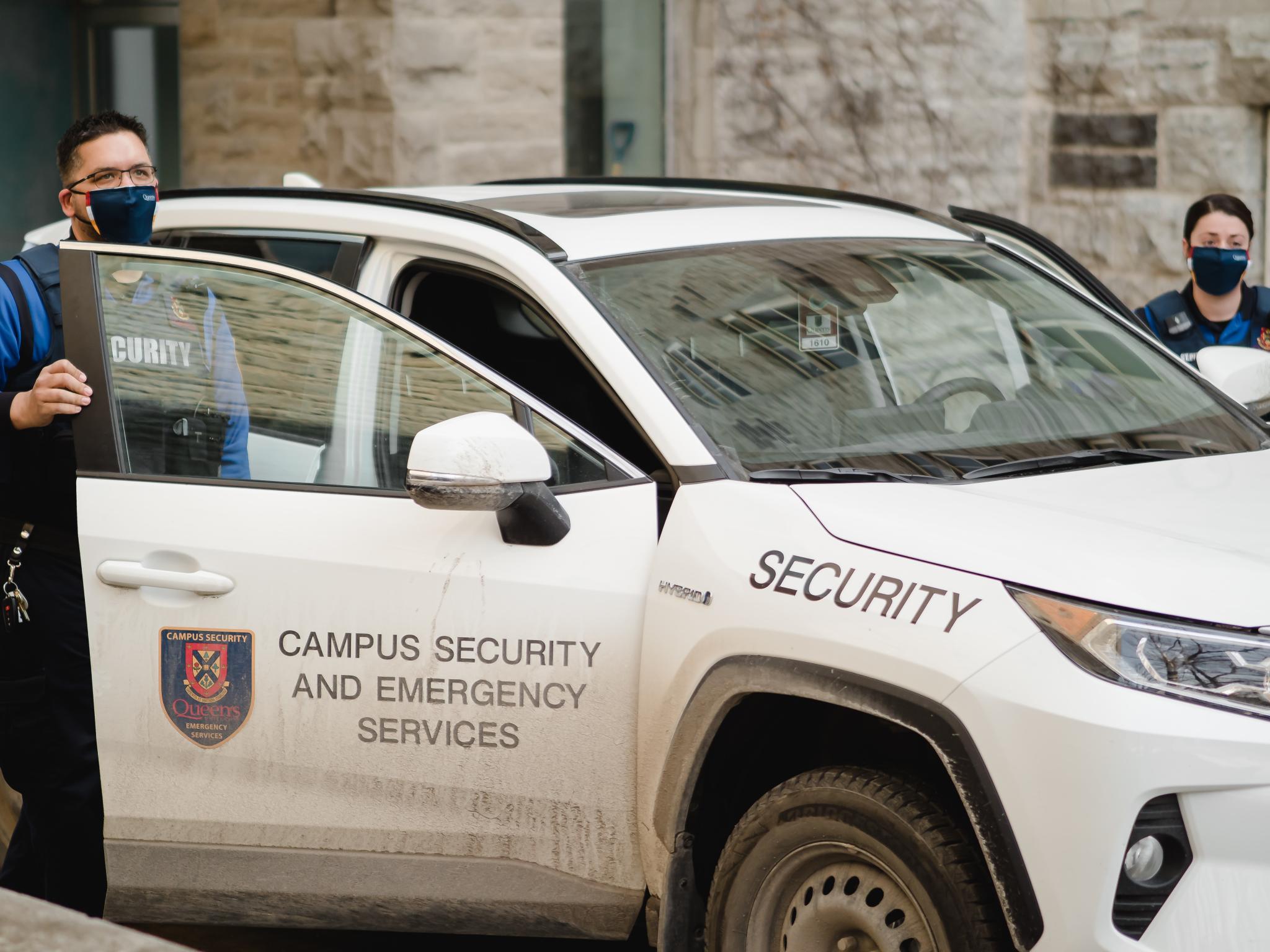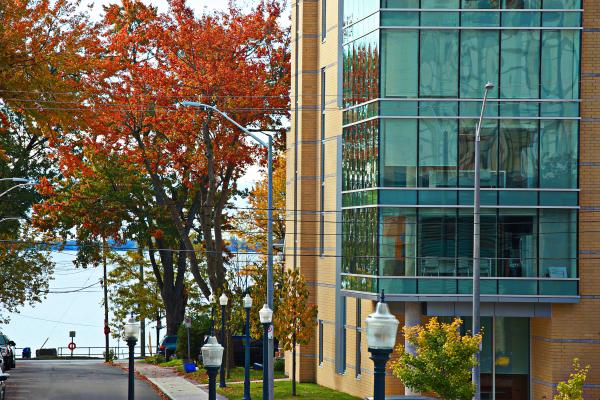You are not alone!
Feelings of stress, anxiety, depression, and sleep disturbances are normal. We are here to support your wellbeing.
“Daring greatly means the courage to be vulnerable. It means to show up and be seen. To ask for what you need. To talk about how you’re feeling. To have the hard conversations.”
Brene Brown, PHD, LMSW
Building Resilience
We encourage you to problem solve, think critically, accept responsibility for your actions, learn, ask for help, access support resources, and grow from challenging experiences.
While living in residence, you will learn to:
- Develop self-management strategies that will help you manage your well-being when navigating challenges.
- Navigate interpersonal conflicts with others with an interculturally aware lens.
- Demonstrate responsible decision-making, specifically learning and growing from your experiences.
Residence Life Coordinators
Residence Life Coordinators (RLC) are full-time, professional live-in staff who are responsible for establishing a cohesive and vibrant residence community. They support and develop your residence community through educational programming, team development, critical response, and student conduct. RLCs are available to discuss any questions regarding the community and address your concerns.

Residence Dons
Residence dons are student staff who are trained to support you and create a safe and engaged community. Dons are knowledgeable of campus resources and are trained to assist you in conflict mediation, peer counselling, community development, leadership, and more. Dons are on-call and available between 8:00 pm, and 7:00 am daily.
Residence Mental Health Therapists
Residence Mental Health Therapists are available to help you while living in residence.
Your Experience Matters!
We are here to support your wellbeing throughout your university experience. Connect with some of our campus partners and enrich your experience.
Student Affairs offers a range of diverse high-quality programs and services designed to enhance your university experience from your first point of contact with Queen’s through to graduation. Whether you’re looking for academic, emotional, social, cultural, spiritual, physical or career-related support, we encourage you to take advantage of all that Queen’s has to offer.
Student Academic Success Services (SASS) offers academic support to you to develop your skills in critical thinking, reading, learning, studying, writing, and self-management. You can book an individual appointment to enhance academic skills, improve time management, cope with distractions, and find supports for English as an Additional Language, workshops, outreach events, and online resources.
Academic Counselling & Tutoring supports are available to you. The transition to university life is a big one – and part of it is adjusting to the challenges and workload that are part of being a Queen’s student. At Queen’s you are never alone.
Academic Considerations are a compassionate response to assist you if you are experiencing an unforeseen short-term extenuating circumstance that may impact or impede your ability to complete your academics.
Empower Me is a Equity, Diversity, and Inclusivity sensitive service where you can request, culture, race, religion, gender identity/sexual orientation specific support in multiple languages.
Queens Student Accessibility Services (QSAS) is committed to supporting you if you are experiencing barriers related to functional impacts as you pursue your academic goals. QSAS supports you to level the playing field by implementing academic accommodations that remove barriers to your academics.
Campus Security and Emergency Services

Queen’s Residences works hard to provide safe and secure living spaces – but YOU also share responsibility for keeping our buildings safe.
Please:
- Securely close building doors and avoid propping doors open
- Keep your room locked at all times
- Be aware and watch that unescorted non-residents don't follow you into your building.
- Report any strangers or suspicious activity to the front desk
Security in Residence
Most buildings are locked 24 hours a day (with the exception of buildings that have public access, such as Victoria Hall).
Your Don will tell you about any safety issues occurring on campus.
Campus Security has an e-mail alert system to notify you of any security concerns on campus.
Stay Safe on Campus
Remain Alert, both on Queen's property or off campus.
Trust your intuition and act on it. If you feel uncomfortable, there is a reason for it. Make your feelings known.
Familiarize yourself with your surroundings, especially phone locations, designated emergency exits, and other possible avenues for help.
Make your concerns about campus safety known: to students, to professors, to your colleagues, to the administration, and to Queen's Campus Security and Emergency Services (613-533-6733).
Learn more about safety on campus.
Emergencies
Fire alarm drills are held at the beginning of each year, and fire alarm testing is conducted on the last Monday of each month. Please evacuate for all fire alarms, except for these monthly tests.
If there is an emergency on campus, your Don or other Residence staff will connect with you to provide details. You may also be contacted by voicemail or through the Campus Digital Information Network.
Missing Person, Wellness or Status Checks
Queen’s Campus Security and Emergency Services can be called upon to assist with locating members of the Queen’s community for whom others have lost contact or have grown concerned for the safety and well-being of the person being sought.
The Queen’s Emergency Report Centre is available 24 hours a day at 613-533-6080 (non-emergency), 613-533-6111 (emergency), or by using a Blue Light Emergency Phone.
Sexual Violence Policy & Response
Sexual violence is a serious and complicated reality on and off university campuses. Sexual violence is not tolerated in our residence communities. Review our policy.
When students experience sexual violence, our trained student and professional staff provide immediate support and connect survivors with appropriate resources. We provide support 24 hours a day, 7 days a week, in safe, non-judgmental spaces for students to share their experiences and access resources.
If you have been sexually assaulted or have experienced another form of sexual violence:
Get Help NowGo to a safe place!
- Understand it’s not your fault
- Tell someone you trust
- Speak to an on call Don or Residence Life Coordinator in the building
- Contact Front Desk staff to dispatch a staff member to you
If you disclose an incident of sexual violence to a Don, they will call a Residence Life Coordinator to attend and help assess your safety.
The Residence Life Coordinator will provide you with additional support on how to seek medical attention, incident reporting options, and counselling service referrals.
You will choose whether or not you speak to a Residence Life Coordinator and/or meet with Barb Lotan, the Sexual Violence Prevention and Response Coordinator.
Residence staff have a duty to report your disclosure in an internal system. It is your right to ask to view anything documented. If you have questions or concerns about confidentiality, ask individuals before sharing your information.
Generally speaking, the only individuals at Queen's that can assure complete confidentiality are those providing medical or individual counselling services (ie. Student Wellness Services) or Barb Lotan, the Sexual Violence Prevention and Response Coordinator.
No. We are committed to providing support to you regardless of how you choose to proceed or how much information you decide to share.
If you choose to disclose the perpetrator's name, Residence Life and Services will assess if further action may be required to address the accused if they are deemed an additional threat to public or personal safety.
If the perpetrator is deemed a safety risk to you or other residents, our staff will meet with the perpetrator to discuss possible outcomes. Options may include:
- The perpetrator has no contact with the survivor (in which case, the survivor must be named).
- A mandatory move to a different building.
- Termination of their residence contract.
- A Notice of Prohibition to residence.
Yes. Your Don, another Don in your building, or a Residence Life Coordinator is always available to provide support and information about resources regardless of where the incident took place.
No. Residence staff will provide support, a listening ear and offer resources regardless of when an incident of sexual violence occurred. Suppose you share something with a Don that occurred before you arrived at Queen's; a Residence Life Coordinator will not attend unless there is a concern for your safety or the safety of others in your community. You may request to speak to a Residence Life Coordinator, should you choose.
Listen without judgment. Let the survivor know that you believe them. You don't need to ask the survivor what happened; instead, ask how you can help.
If the survivor wants to talk to someone who can let them know about their options and other resources, encourage them to contact Barb Lotan, the Sexual Violence Prevention and Response Coordinator.
As per Queen's Policy on Sexual Violence, the university will ensure that you receive appropriate support and advice. The University Ombudsperson can provide information and resources about your rights as a respondent.
For more FAQs, please visit https://www.queensu.ca/sexualviolencesupport/faq-sexual-violence-policy.
 Student Residence & Dining Portal
Student Residence & Dining Portal